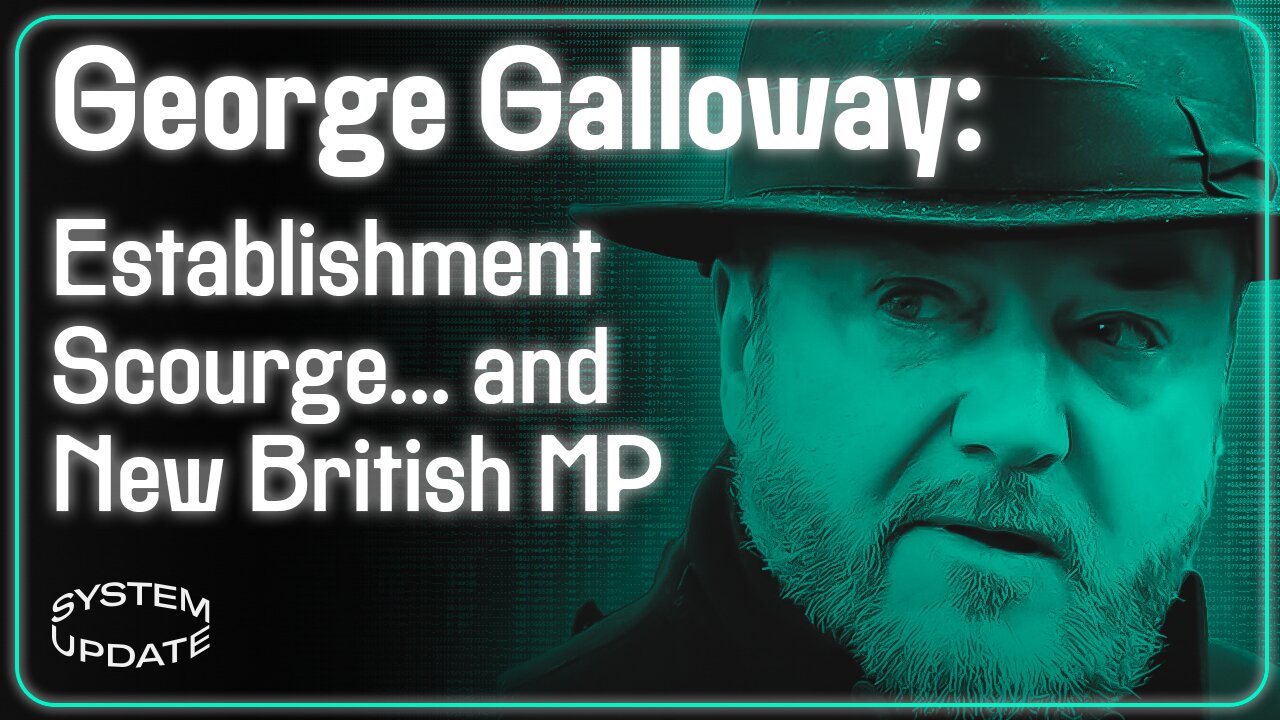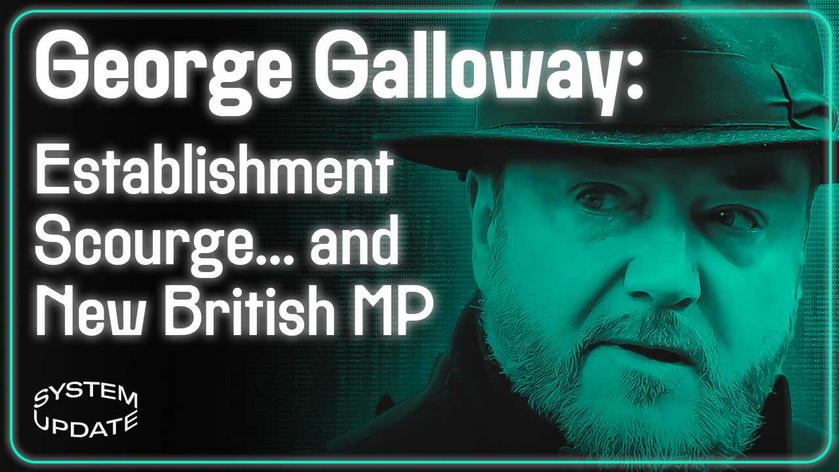Watch the full episode here:

Good evening. It's Thursday, March 7.
Tonight: George Galloway was elected to be a member of the British Parliament just last week. He did not just win but crushed both major political parties, the conservative Tory Party, the party that is currently in power, as well as the Labour Party, which is widely expected to win the prime ministership later this year under the tepid, vapid and principle-free establishment symbol named Sir Keir Starmer.
Galloway, running as part of a hard-to-characterize new party, received more votes than all other candidates combined. He is whatever else one might want to say about him, a fascinating figure. He first came to prominence in the United States in 2005, when he voluntarily went to the American Congress, which at the time vehemently supported the Bush-Cheney invasion of Iraq on a widespread bipartisan basis, and he humiliated his interrogators in Congress who had been accusing him of opposing the Iraq War only because he was accepting money from the Saddam Hussein regime on live national television. For those of you who never saw it or have not seen it in a while, I highly recommend watching it. It was one of the most eloquent, articulate and scathing displays of oratory I have ever seen, and he was unflinching in expressing his contempt for war-hungry Washington over its invasion of Iraq and the broader War on Terror, as well as the slander campaign launched against him to discredit him for opposing the war.
At the time, Galloway was a member of the Left Central Labour Party, and he had been long regarded as a man of the left. But the Labour Party in the UK, just like the Democratic Party of Hillary Clinton, John Kerry and Joe Biden, was fully on board with the war in Iraq. Its then prime minister, Tony Blair, who was a member of the Labour Party, the leader of it, was intensely mocked for being George W. Bush’s puppy dog often offering a more vibrant and eager defense for the invasion of Iraq than George Bush himself could ever muster. As a result of Galloway's very outspoken denunciations of Tony Blair and his role in the Iraq War, he was expelled from his own party. Since then, Galloway has twice returned to Parliament, representing three different parties and four different districts or constituencies, as they are known over there. He's like an anti-Establishment zombie they think they keep killing, only for him to haunt them with his continuous returns.
The case of George Galloway is fascinating, not only because of his unique rage and the contempt he induces in the political and media establishment—although it really is something to behold. He also clearly represents a new kind of politics—someone who, during the Iraq War, was universally regarded as a leftist, only for him to then adopt a series of views that put him directly at odds with the left-liberal orthodoxy in the West. He vehemently opposed the U.S.-NATO regime change wars in Syria and Libya, loudly opposed the U.S. and UK fueling of the war in Ukraine from the start of that war and heaps contempt on elite left-wing culture-war pieties that alienate the exact working class that the left insist it represents. He defended Brexit, the UK's decision to leave the EU, and he also resisted many COVID orthodoxies. He opposes mass and uncontrolled immigration into Europe and the UK for the same reasons he opposes their wars, namely, by arguing that it's a boon to elite classes while the working class and ordinary people suffer from those policies.
Interestingly, George Galloway has changed none of his views from that era when he was expelled from the Labour Party, from the left, for opposing George Bush and Tony Blair's war in Iraq, but neoliberal foreign policy, centrist economics and left-liberal culture-war views have changed dramatically around him. More than anything else, George Galloway, like so many people these days, is driven by an ideology best described not as right or left, but as anti-establishment. The reason his victory sparked such intense contempt in the media and political classes is that is the ideology and the growing movement—anti-establishment views—that they fear more than any other.
We sat down with Galloway just a bit earlier today, just a few minutes ago, and we are very excited to show you our conversation which covered issues from various wars taking place to domestic politics in the UK, the way it reflects a broader political movement and a transformation of politics in both the West and various parts of the democratic world. He is as amusing as he is articulate, as provocative as he is insightful. We view him and his victory as very worth paying attention to.
For now, welcome to a new episode of System Update, starting right now.






















